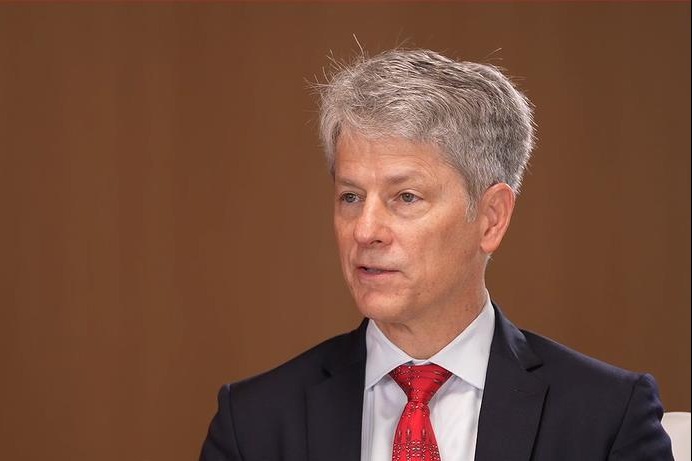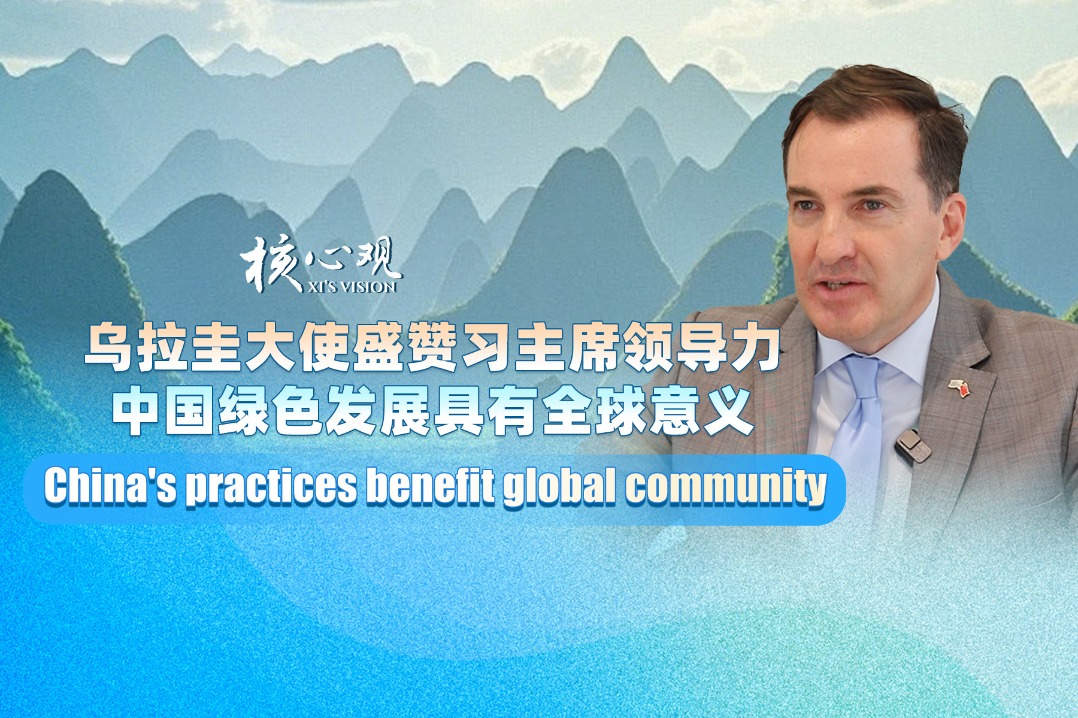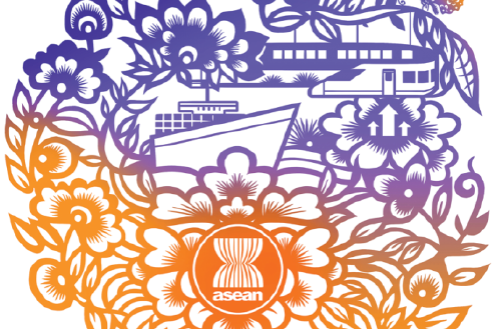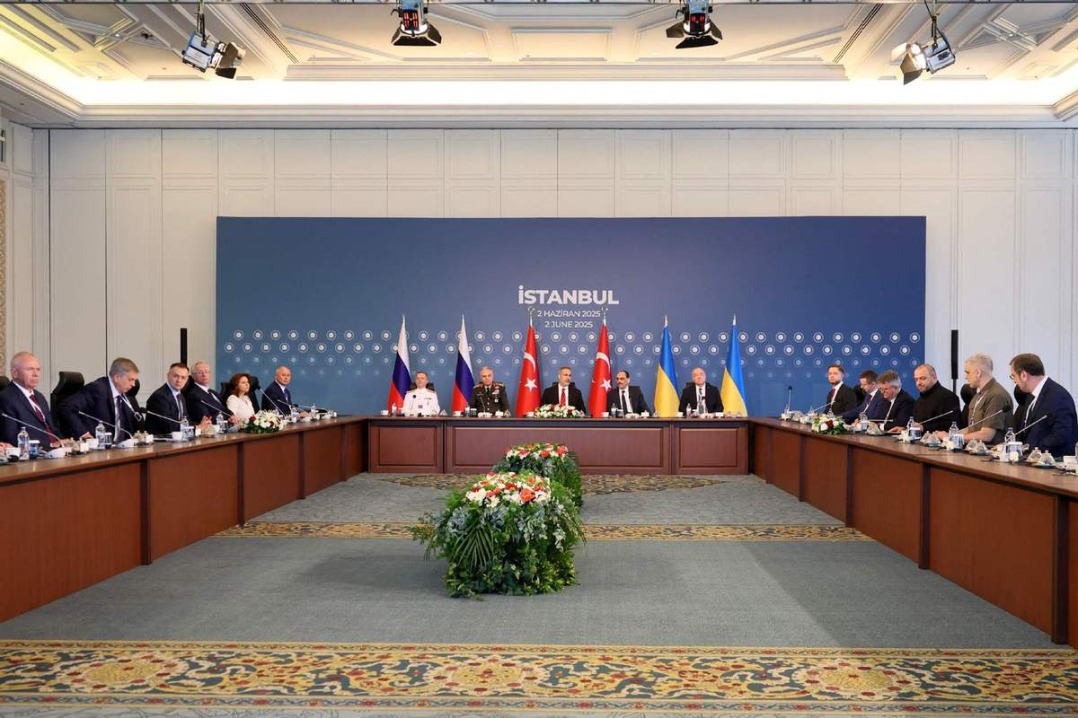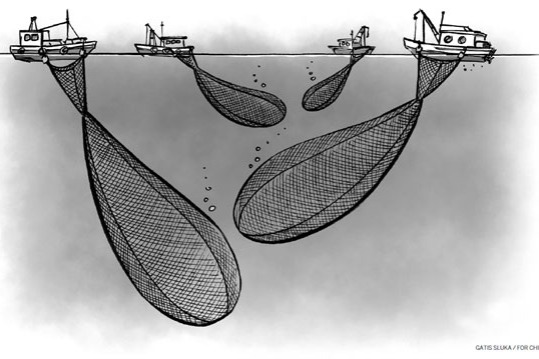Divisive, disruptive and dangerous
US' attempts to sow discord in Asia imperil regional security and prosperity

US' attempts to sow discord in Asia imperil regional security and prosperity

The just-concluded Special Summit between the leaders of the United States and the Association of Southeast Asian Nations seemed to cover lots of substantial issues, but the underlying messages from Washington before and during the summit are even more disturbing than at first glance for the security and economic development of Asia.
Several things stand out.
The Joe Biden administration's efforts to revitalize "Pivot to Asia "and "off-shore balancing" were writ large throughout the summit by insinuating the urgency of "preventing China's threat" to US interests and those of its Asian allies. This is a call to action following the narrative of a Cold War that contravenes "the peace and development "theme of our times.
Following the Quadrilateral Security Dialogue with Japan, India and Australia as well as the AUKUS of the US, the United Kingdom and Australia, the US Indo-Pacific Strategy calls for NATO's internationalization by means of its expansion into Asia. With the special summit, there is no doubt the US aimed at sowing discord between ASEAN and China using ideological rivalry and bloc confrontations as cover. By pressuring ASEAN to choose sides, the US seeks to deepen the fray and disunity among ASEAN countries, further weakening ASEAN's centrality in Southeast Asia and imperiling the peaceful environment needed for economic growth in this traditionally dynamic region.
Southeast Asian countries have been troubled for many years by their perceived policy dilemma of maintaining strong economic relations with Beijing while reinforcing security ties with Washington. This dilemma reveals the anxiety some countries in the region have regarding real or imagined insecurity prompted by the worsening bilateral relationship between the US and China over the last decade or so.
The US keeps feeding that anxiety by labeling China "a revisionist authoritarian country" for no other reason than the fact that China has chosen its own path of development and is not toeing the US line politically and ideologically.
The Indo-Pacific Economic Framework (IPEF) as proposed and promoted by the US at the summit is a new move by the US to not only exacerbate this dilemma ASEAN faces, but also to buttress the "weak leg" of economic ties the US has with those countries by rewriting the regional economic playbook and changing the economic landscape to exclude China as much as possible. The details of IPEF are still being worked out, but the intention is crystal clear for the US Indo-Pacific Strategy. The Biden administration pledged $150 million to cooperative programs for infrastructure, maritime security and healthcare to counter-balance China's influence as US strategic competitor. China promised $1.5 billion of assistance for ASEAN to fight against the COVID-19 and help economic recovery.
Yet the reality of ever closer economic ties between China and its neighbors near and far especially with ASEAN cannot be ignored. The geopolitically swinging countries such as Indonesia, Malaysia and the Philippines will continue to swing regarding new proposals such as IPEF by the US to exclude China in the regional economy as ASEAN is part and parcel of the Regional Comprehensive Economic Partnership, the most recent trade arrangement in the Asia-Pacific region. It is understood that some global and regional supply chains have to be reshaped or adapt to geopolitical and geoeconomic changes in the region and the world that have also been ravaged by the COVID-19 pandemic, the decades-long globalization and mutual connectivity that created the global market and supply chains in the first place will not disappear overnight. Instead, it is needed now more than ever before as countries have already formed a community of nations with a shared future whether one recognizes it or not. Chinese astronauts looking from the space station literally found the earth a highly connected "global village". And as the COVID-19 has taught us that there is no way a single country, no matter how powerful it is, can cope with global challenges such as pandemics, climate change and cybersecurity.
China has tried its best to promote regional and global economic growth and security by putting forward new ideas for global governance such as the Global Development Initiative and the Global Security Initiative to be implemented with true multilateralism and global cooperation. Global development and security are holistic in nature which necessitates cooperation and coordination as one country's economic growth and security is intrinsically entwined with others. Togetherness is the word for all of us.
There will be no lasting security and economic prosperity for one at the expense of others. The lop-sided economic and security arrangements that benefit some while hurting many are outdated.
The "Global Ship" sailing on winds of globalization carries all of us willingly or unwillingly. The only way to ride the waves and reach the other shore is to pull in the same direction for a better future of mankind.
It is imperative and urgent that countries in Southeast Asia and the Asia-Pacific region, especially major powers, ditch Cold War mentality and focus instead on what needs to be done to maintain and promote collective security and economic prosperity in the region and for the world.
They should firmly support the global governance system with the United Nations at its core and practice true multilateralism in pursuit of the global agenda on security and economic growth including the 2030 United Nations Sustainable Development Goals.
They should make sure that hotspot issues are managed and solutions found through political negotiation and dialogue. Countries concerned must play the role of "coolants" instead of adding fuel to the fire, be it with regard to the Ukraine crisis or conflicts in the Middle East and East Africa.
They should try to eliminate the bifurcation dilemma by integrating economic cooperation with security collaboration on an equal and nonideological basis by seeking common ground while shelving differences wherever possible. And they should say no to the total disruption of the global supply chains and globalization using group or bloc politics as leverages. Strenuous efforts must be made to build up a comprehensive and inclusive security framework for Asia by overcoming "ideological rivalry" and strategic competition in the region. That means saying no to a new Cold War or "Cold Peace" no matter how it is phrased and encroached in enticing language.
Asian countries do not welcome division and estrangement from one another. Solidarity and collectivity are a must to tackle the tremendous challenges the world faces.
Any country peddling Cold War ideas should be firmly resisted for the sake of a better future for all countries in the region and beyond.
The author is former vice-minister of foreign affairs of China, former deputy director of Overseas Chinese Affairs Office of the State Council and a chair professor at Yanjing Academy of Peking University. The author contributed this article to China Watch, a think tank powered by China Daily. The views do not necessarily reflect those of China Daily.
Contact the editor at editor@chinawatch.cn

















